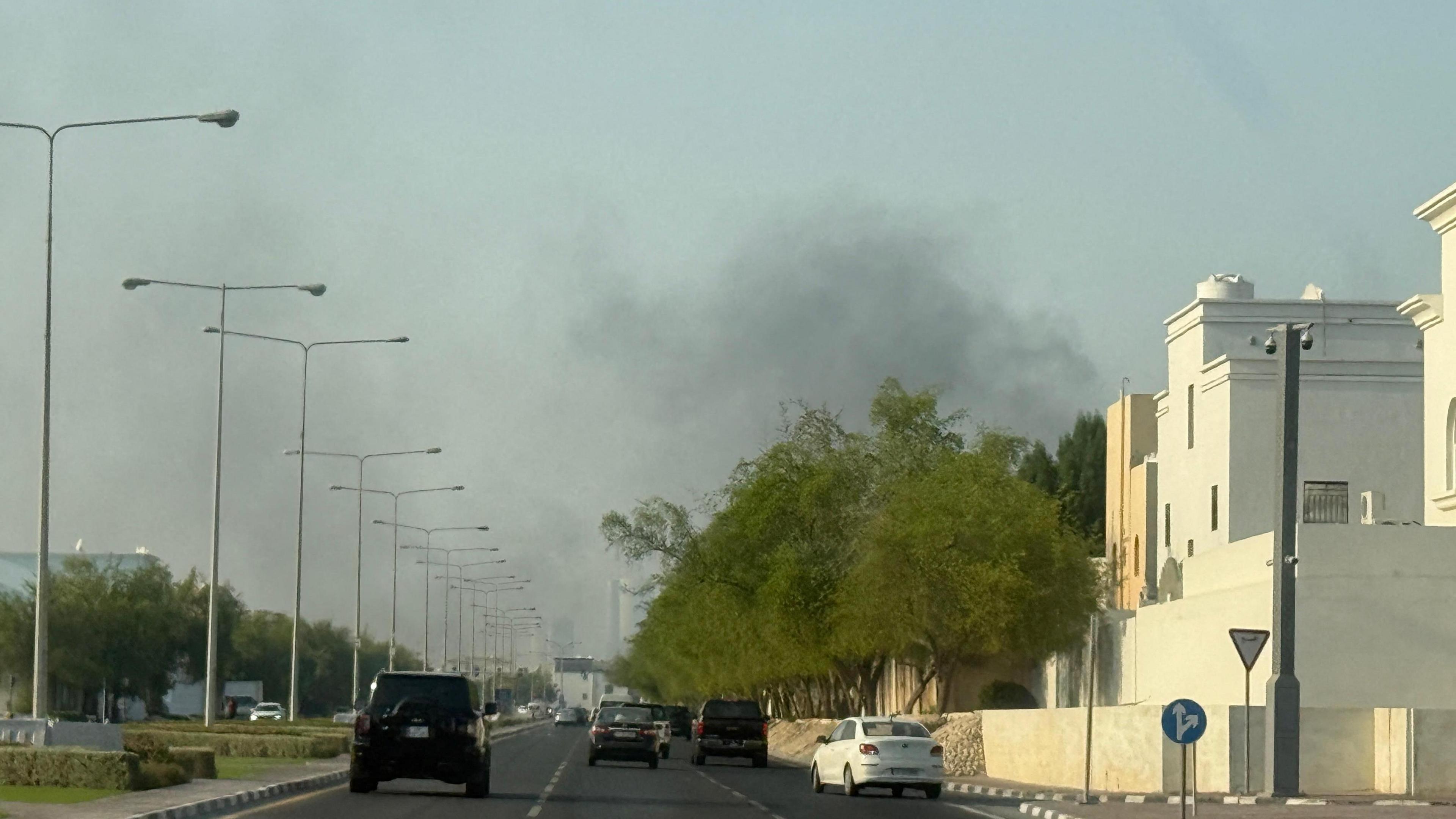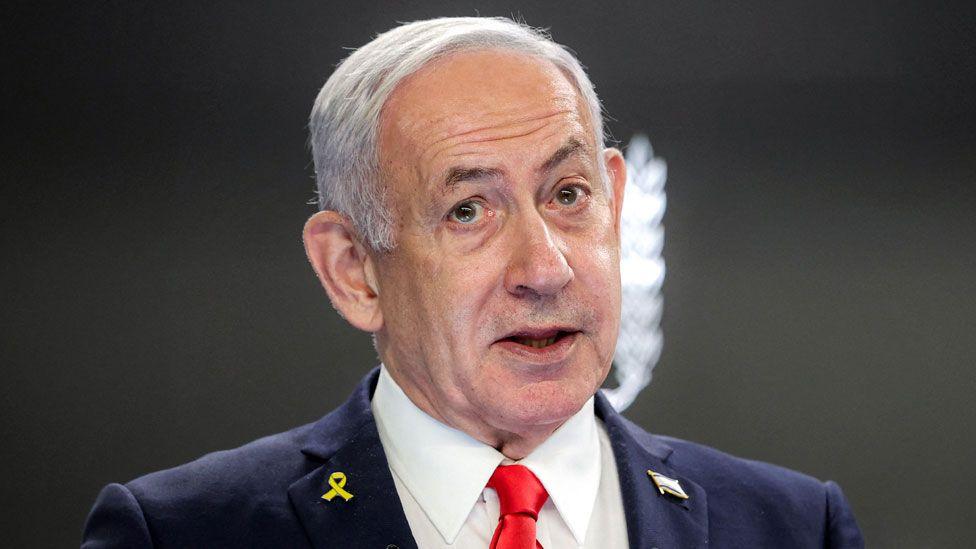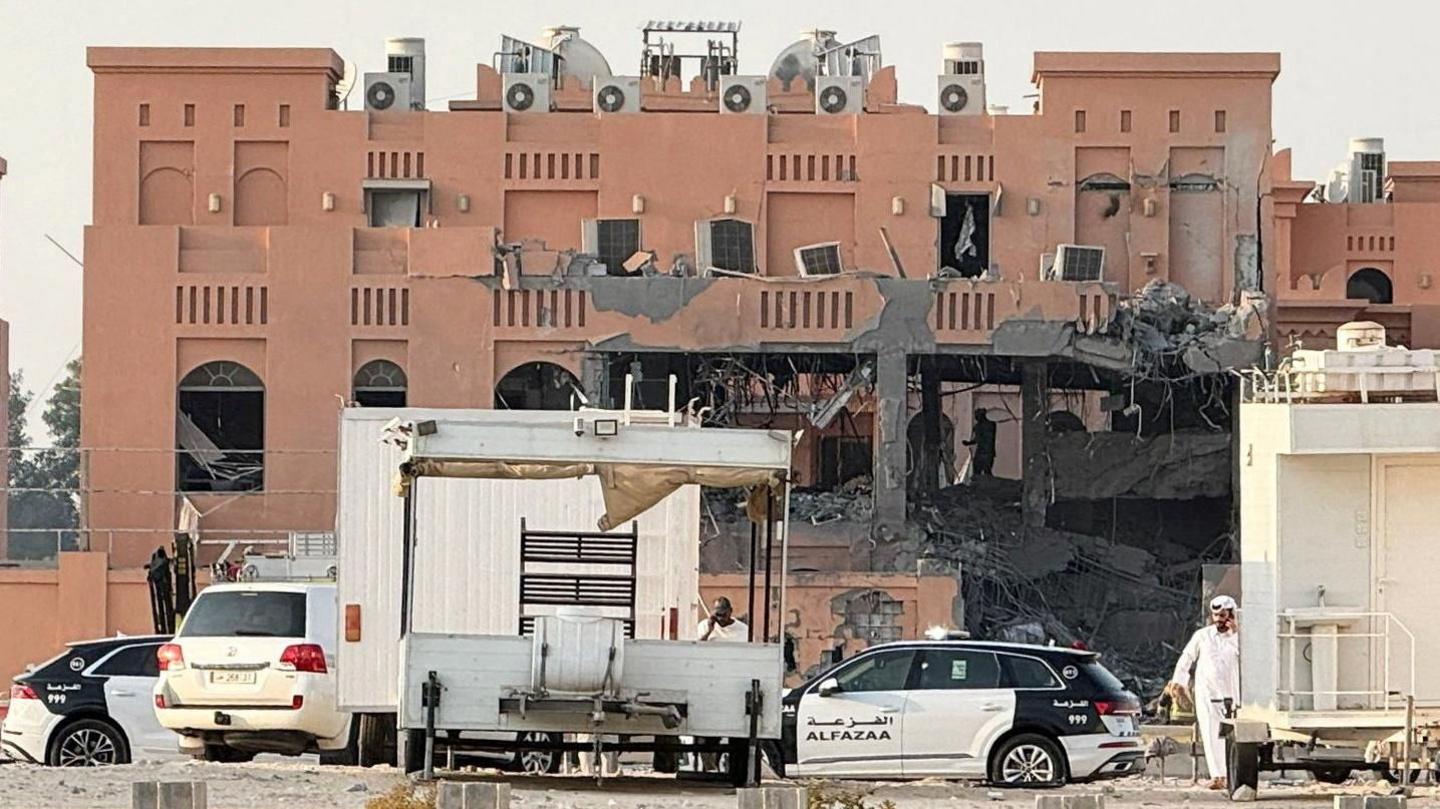'I thought the world was going to end', Qatar strikes witness tells BBC

- Published
The Qatari capital, Doha, is back to normal today, with traffic moving on the highways, and skyscrapers shimmering in the heat.
But there are new tensions across the Middle East, and a key question – what red lines now remain for Israel in its pursuit of Hamas, if any?
Targeting Hamas on the soil of Qatar was presumed to be a line Israel's Prime Minister Benjamin Netanyahu would not cross.
Yesterday, that assumption was blown to pieces, and with it, probably, any chance of a ceasefire deal in Gaza.
In a neighbourhood close to the scene of the attack - where plush villas and foreign embassies sit behind high walls, topped with bougainvillea - the streets lay empty.
The Israeli strike punched a large hole into the belly of a building where the Hamas leadership had been meeting to consider a US peace proposal. We got a glimpse of the damage as we drove past, but a police presence meant we could not get too close. Media reports say Israeli officials codenamed the strike 'Judgement Day.'
At the local barbers we met a witness, 42, who did not want to be named. Fear flashed across his face as he relived the moment of the attack.
"The noise was so loud my heart was pumping," he told me. "I thought the world was going to end. I heard five rockets, and I ran away. Many people were running. Normally nothing happens here."
Given that Hamas has said its negotiating team survived the attack, I asked if he was afraid Israel would try again. "Very afraid," he said quietly.
Hamas claims the attack missed its intended targets – including the exiled Gaza chief and top negotiator, Khalil al-Hayya. While we have no firm information about Hayya's condition, or his whereabouts, one Palestinian source outside Gaza claims he is critically injured in hospital and is not expected to survive. This is unconfirmed, and there is no word from Hamas in Gaza.
We do know that Hayya's son and the head of his office were killed, along with three bodyguards. Were the bodyguards close to Hayya when Israel struck? We don't know, but normally, they would have been expected to be nearby.
Hamas figures in Doha are uncontactable and their phones are switched off. Having felt safe to move around here in the past, they may now be making very different calculations. There is a sense that all bets are off.
Whether or not Israel managed to hit its targets here, it has managed to anger President Trump and enrage Qatar. The country is an important US ally, which has hosted the political leadership of Hamas since 2012, and also holds a large American base.
Qatar says Israel's attack was "state terrorism".
The Qatari Prime Minister, Mohammed Al Thani, has made it clear that there was no advance warning from the US. The first call from an American official came 10 minutes after the attack started, he said.
Related topics
- Published9 September

- Published10 September
